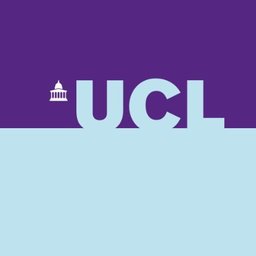Research Assistant (burns Lab)
London, ENG, GB, United Kingdom
Job Description
Ref Number
B02-08946
Professional Expertise
Research and Research Support
Department
School of Life & Medical Sciences (B02)
Location
London
Working Pattern
Full time
Salary
35,930-41,255
Contract Type
Fixed-term
Working Type
On site
Available for Secondment
No
Closing Date
27-Jul-2025
About us
------------
The Burns Laboratory is focused on Inborn errors of immunity (IEI) - a group of rare inherited diseases that result in immunodeficiency and/or autoimmunity, inflammation and malignancy. Our research group aims to understand the molecular and cellular pathogenesis of these diseases, both to identify new causative genes and to understand how specific genetic mutations or variants of unknown significance impact immune cell function. For this we use a combination of bioinformatic approaches, in-vitro cell line models and primary cells. We aim to improve genetic diagnosis of IEI, understand how different mutations in specific IEI genes contribute to variation in disease phenotype and test whether targeted IEI drug therapies correct immune cell function.
For this project, the Burns laboratory is collaborating with Professor Helen Lachmann, a world expert in Systemic Autoinflammatory Diseases (SAID). She leads the diagnostic laboratory service that provides national genetic diagnosis of SAID and a co-located clinical service at the Royal Free Hospital that cares for the largest and broadest cohort of adults and adolescents in the world with these group of diseases.
About the role
------------------
This post will work with a team to improve our understanding of and diagnosis for Systemic Autoinflammatory Disorders (SAID), a group of disorders of the innate immune system that cause recurrent attacks of severe inflammation and fever. Wider application of next generation genetic sequencing (NGS) for patients with suspected rare conditions, has accelerated diagnosis for SAID. Accurate genetic diagnosis has improved our understanding of SAID, identifying an expanded range of disease presentations and more complex patterns of genetic inheritance, and importantly has allowed us to identify patients eligible for specific highly effective treatments. Paradoxically, NGS has also made SAID genetic diagnosis more complicated by identifying many variants of unknown significance (VUS) that are not clinically actionable. As a result, patients can be left without a clear diagnosis and management plan.
This project addresses this problem. The postholder will develop a panel of laboratory-based tests of immune cell function focused on SAID genes for which robust functional validation is not currently available in clinical diagnostic laboratories. The postholder will then validate these tests in patients with a variety of SAID confirmed by pathogenic mutations and subsequently test blood samples from patients with suspected SAID who have genetic VUS. This will enable assessment of the functional consequences of SAID genetic variants in immune cells to extent our understanding of the pathogenesis of SAID and establish tests that can be used for diagnosis and direct patient benefit.
The position is available for 1 year in the first instance.
About you
-------------
We are seeking a scientist motivated to work in translational immunology on a project with direct relevance to patients. You should have experience of working in a laboratory and fulfil the essential criteria in the Person Specification. Given the goal of the project to develop robust diagnostic assays we are looking for someone who is organised in their approach to work, able to troubleshoot and who keeps careful records. You should be able to work both independently and as part of a team. Some experience in teaching or supervising is desirable as the post-holder will work with the Burns laboratory to supervise BSc, Msc and PhD projects in the laboratory.
Please see the attached job description and person specification for full details. Please also read the attached Candidate Guidance document.
All applications must include a supporting statement, telling us, using examples, how you meet the essential criteria listed in the job description. Applications without a supporting statement will be rejected.
If you have any queries about the role or application process, technical issues, or need reasonable adjustments or a more accessible format to apply for this job online, please contact the staffing team at hr.ii@ucl.ac.uk.
The UCL Ways of Working supports colleagues in being successful and happy at UCL by sharing expectations around how we work. Please visit www.ucl.ac.uk/human-resources/policies-advice/ways-working to learn more.
What we offer
-----------------
As well as the exciting opportunities this role presents, we also offer some great benefits some of which are below:
41 Days holiday (27 days annual leave 8 bank holiday and 6 closure days) Additional 5 days' annual leave purchase scheme Defined benefit career average revalued earnings pension scheme (CARE) Cycle to work scheme and season ticket loan Immigration loan Relocation scheme for certain posts On-Site nursery On-site gym Enhanced maternity, paternity and adoption pay Employee assistance programme: Staff Support Service Discounted medical insurance
Visit https://www.ucl.ac.uk/work-at-ucl/reward-and-benefits to find out more.
Our commitment to Equality, Diversity and Inclusion
-------------------------------------------------------
As London's Global University, we know diversity fosters creativity and innovation, and we want our community to represent the diversity of the world's talent. We are committed to equality of opportunity, to being fair and inclusive, and to being a place where we all belong. We therefore particularly encourage applications from candidates who are likely to be underrepresented in UCL's workforce. These include people from Black, Asian and ethnic minority backgrounds; disabled people; LGBTQI+ people; and for our Grade 9 and 10 roles, women.
Our department holds an Athena SWAN Silver award, in recognition of our commitment and demonstrable impact in advancing gender equality.
Beware of fraud agents! do not pay money to get a job
MNCJobs.co.uk will not be responsible for any payment made to a third-party. All Terms of Use are applicable.
Job Detail
-
Job IdJD3240505
-
IndustryNot mentioned
-
Total Positions1
-
Job Type:Full Time
-
Salary:Not mentioned
-
Employment StatusFull Time
-
Job LocationLondon, ENG, GB, United Kingdom
-
EducationNot mentioned




